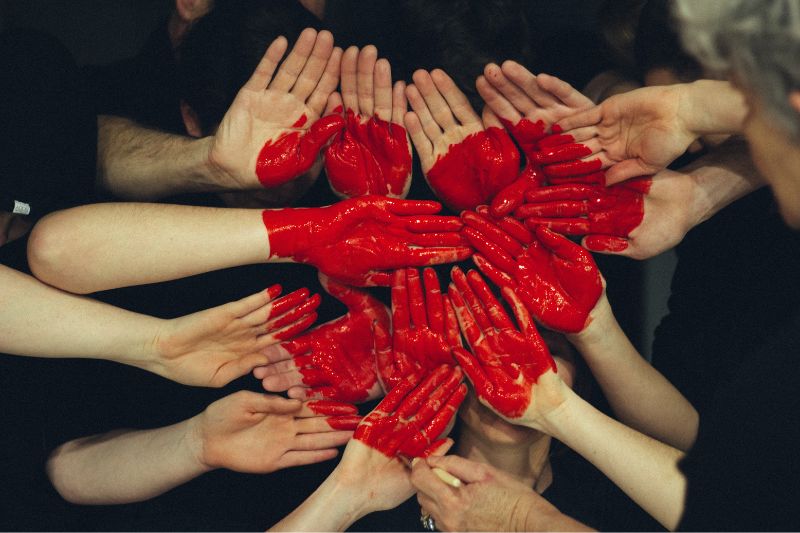Overcoming Betrayal: Moving on from Fake Friends

Have you ever been deceived or let down by someone you considered a friend? Betrayal in friendship is a distressing experience that can shake your trust and self-confidence. This guide, “Overcoming Betrayal: Moving on from Fake Friends,” is your companion on the journey to healing and personal growth.
Friendship betrayal can manifest in various forms, leaving you with a sense of hurt and confusion. As you navigate the complexities of these situations, you’ll learn to identify the warning signs of fake friends, cope with your emotions, and find the strength to move forward.
In this exploration, you are not alone, and there is a path to rebuilding trust and forming more authentic connections. Let’s embark on this healing journey together, uncovering ways to overcome betrayal and cultivate healthier relationships in the process.
Understanding Betrayal in Friendship
Betrayal in friendship takes various forms, and it’s crucial to comprehend the nature of these experiences to navigate them effectively. And for that reason, let’s first delve into the different facets of this emotional challenge.
Types of Betrayal
Friendship betrayals can encompass deception, backstabbing, and disloyalty. Deception occurs when a friend hides their true intentions or feelings, leading you to believe something that isn’t accurate. Backstabbing involves a friend talking negatively about you behind your back or undermining your trust. Disloyalty occurs when a friend fails to support or stand by you when you need them the most. Understanding these different forms of betrayal can help you recognize them when they occur.
Emotional Impact
Betrayal often triggers strong emotions. You might feel hurt, angry, or even betrayed yourself. The impact can extend beyond the immediate incident, causing long-term trust issues and affecting your self-esteem. Recognizing these emotional responses is a crucial step in dealing with betrayal.
As you embark on the journey of overcoming betrayal, it’s important to acknowledge the complexity of these experiences. Understanding the types of betrayal and their emotional repercussions is the first step toward healing and moving forward.
Recognizing Fake Friends
Identifying fake friends is an essential skill on your path to healing and building healthier relationships. To overcome betrayal, you must learn to spot the red flags that indicate insincerity and disloyalty within your friendships.
Red Flags
Inconsistent Behavior: Fake friends often display inconsistent behavior. They may be friendly and supportive one moment but distant or critical the next. This unpredictability can leave you feeling unsettled.
- Lack of Empathy: Genuine friends empathize with your feelings and experiences. Fake friends, on the other hand, might be indifferent or unsupportive when you need them most. They may not show genuine concern for your well-being.
- Frequent Gossiping: If your friend is constantly gossiping about others, they may do the same about you when you’re not around. This behavior can erode trust and lead to betrayal.
Self-Reflection
In addition to recognizing these red flags in your friends, take time for self-reflection. Assess your feelings and experiences within the friendship. Do you often feel uneasy or unimportant in their presence? Are there consistent patterns of behavior that trouble you?
By learning to identify these warning signs and reflecting on your own feelings, you can become more adept at recognizing fake friends. This knowledge will empower you to make informed decisions about the friendships you invest in, helping you avoid further betrayal in the future.
Coping with Betrayal
When you’ve identified a fake friend and experienced betrayal, it’s essential to address your emotions and find healthy ways to cope. Coping with betrayal is a crucial step in your journey towards healing and personal growth.
Processing Emotions
Allow yourself to feel the full spectrum of emotions that betrayal brings. It’s normal to experience hurt, anger, and even sadness. Instead of bottling up these feelings, acknowledge them. Journaling can be a valuable outlet for expressing your thoughts and emotions, providing clarity and relief.
Seeking Support
Don’t go through this challenging time alone. Reach out to trusted individuals who can lend a sympathetic ear. Sharing your feelings with a close friend, family member, or therapist can help you process the betrayal and gain valuable insights. Therapy or counseling, in particular, can offer professional guidance to cope effectively.
Coping with betrayal is a gradual process, and it’s okay to take your time. Your emotions are valid, and by addressing them and seeking support, you’re taking proactive steps toward healing and moving on from the pain of fake friends’ betrayal. Remember, you have the strength within you to overcome this adversity and emerge stronger on the other side.

Moving on from Fake Friends
As you navigate the aftermath of betrayal by fake friends, the process of moving forward is a pivotal stage in your healing journey. It’s about regaining your strength, rebuilding trust, and forming new, authentic connections.
Setting Boundaries
To protect yourself from future betrayals, learn to set clear boundaries. This means expressing your needs, asserting yourself, and being unafraid to say “no” when necessary. By guarding your emotional and mental well-being, you reduce the risk of being hurt again.
Building New, Healthy Relationships
Reconnecting with genuine friends and actively seeking new, meaningful connections can be a refreshing step forward. True friends are those who support and uplift you, and by nurturing these relationships, you reaffirm your worth and reinforce the value of authenticity in your social circle.
Self-Care and Healing
Self-compassion and self-care are essential as you move on from betrayal. Engage in activities that bring you joy, pursue your passions, and prioritize your well-being. By nurturing yourself, you can rebuild the confidence that may have been eroded by the fake friends’ betrayal.
Moving on from fake friends requires time and patience, but it’s a vital part of your healing process. By setting boundaries, forming genuine connections, and caring for yourself, you’ll gradually regain your trust in others and, most importantly, in yourself.
Forgiveness and Closure
In your journey of overcoming betrayal and healing from fake friends, the concepts of forgiveness and closure play a significant role. These steps are about letting go of the past and finding inner peace, even if reconciliation with the betrayer isn’t possible.
Understanding Forgiveness
Forgiving doesn’t mean forgetting or condoning the betrayal; it means releasing the hold it has on your emotions. Forgiveness is a gift to yourself, allowing you to move forward without carrying the weight of anger or resentment. It’s essential to realize that forgiving someone is not necessarily reconciling with them.
Closure
Closure is the process of accepting what happened and finding a sense of resolution. It’s about coming to terms with the betrayal, acknowledging the pain, and making a conscious decision to move forward. Sometimes, closure can be achieved through self-reflection, therapy, or talking with a trusted confidant.
Forgiveness and closure can be challenging, but they are essential for your own healing and personal growth. They free you from the burden of past betrayal, enabling you to look ahead with a clearer heart and mind. Remember that these steps are for your well-being, and they do not require you to excuse or forget the actions of fake friends.
Learning and Growth
In the aftermath of betrayal, you have the opportunity for significant personal development and self-discovery. This phase is about reflection and turning the painful experience into a catalyst for growth.
Reflection on Lessons
Take time to reflect on the lessons you’ve learned from this ordeal. What have you discovered about yourself, your boundaries, and the qualities you value in true friendships? These insights can guide you in making better choices in the future.
Personal Growth
Betrayal can be a powerful impetus for personal growth. It often leads to increased self-awareness, resilience, and a deeper understanding of human behavior. Use this newfound wisdom to become a stronger, more empathetic, and wiser person.
Preventing Future Betrayals
Armed with the knowledge and experience gained through this challenging journey, focus on building stronger and more trustworthy friendships. Trust your instincts and red flags when they appear. Your ability to prevent future betrayals becomes an integral part of your growth.
As you navigate the path of learning and growth, remember that every experience, even the painful ones, can be a stepping stone toward a better future. Embrace this opportunity to become a more resilient and discerning individual, and use your newfound wisdom to create a life filled with genuine, supportive friendships.

At the culmination of this transformative journey in “Overcoming Betrayal: Moving on from Fake Friends,” it’s vital to acknowledge the progress you’ve made and the strength you’ve found within yourself. This process of healing and growth is not a one-time endeavor; it’s a continuous path of self-discovery and personal evolution.
You’ve gained insights into recognizing fake friends, coping with the emotional aftermath of betrayal, and finding forgiveness and closure. Each step has been a building block in your resilience and wisdom. As you move forward, remember that you now possess the tools to create healthier, more authentic friendships. Trust your instincts, set strong boundaries, and use your newfound knowledge to navigate your future relationships with grace.
Embrace what lies ahead with confidence, knowing that you have the power to shape a life enriched by genuine connections and lasting happiness. Your journey toward authentic friendships and personal growth is an ongoing one, and with each experience, you become more resilient and better equipped to thrive.






